0940 [0930] Hrs GMT
London
Sunday
10 October 2010
Editor © Muhammad Haque
BHANGEELAAR! Updating the Question for all the 'independent' 'journalists': Why aren’t you reporting on ballot fraud & rigging at 'Referendum'?
The Referendum is the alleged referendum that allegedly took place on 6 May 2010 thus providing the 'legal basis' for the holding of an election for directly elected mayor post that alleged referendum created.
We are using the ‘alleged’ word a lot here. For good reasons: legal, constitutional and democratic. We do not believe that a lawful and constitutional and democratic referendum was held on 06 May 2010.
We are putting this question in the context of the claim made in the last fortnight by the Tower Hamlets Tory ‘candidate for directly elected mayor’ that he would ‘scrap’ the publicly paid for propaganda title ‘East End Life’ that is published by the controlling clique in Tower Hamlets Council.
The BHANGEELAAR! Response to that Tory claim – it is not a promise it is a claim which is based on a different expectation, to the effect that the people in Tower Hamlets will believe the TORY propaganda as opposed to propaganda by the discredited controlling clique that has been in place in Tower Hamlets since 1994 – was published but for a strange [!!!!!!!!!!!!!!!!!!!!!!!] reason the ‘East London Advertiser’ web site where the Tory Neil King’s claim had been first published was not working and so our response was not shown underneath that item.
We shall be examining in some detail during today the role of the ‘East London Advertiser’ and THEIR ‘claim’ that the ‘East End Life’ is undermining their ‘independence.
We shall focus on the continuing circulation of the ‘dossier’ that has been referred to before in connection with the very serious allegations going on inside the UK ‘Labour Party’ over the ‘selection’ of ‘candidates as the directly elected mayor’.
We start by citing a London EVENING STANDARD item by-lined to Andrew Gilligan dated 27.07.09. That is 27 July 2009.
That is an external item, which gave the most ‘credit’ to ‘East London Advertiser’ for the alleged claim that they were in effect campaigning against the various abuses and anti-competitive role being played by the ‘East End Life’
Imagine for a moment that you are Gordon Brown. Angry at the "negative" news agenda of the press, you spend large sums of public money to destroy it.
You start several newspapers of your own, hiring experienced journalists and well-known columnists with big public followings.
You fill your newspapers with nearly everything people buy papers for - news, features, property pages, what's-on guides, even crumpet - and you do it well.
Only a few things are missing from your newspapers - anything whatever that reflects badly on you, and any mention at all of your political opponents.
You offer taxpayer-subsidised advertising rates that your commercial rivals cannot match. You deliver your newspapers free of charge to everyone - unlike your competitor papers, for which everyone still has to pay.
One after another, they shrivel and die. Eventually, as in the former East Germany, the only news available is that provided by your government-controlled newspapers.
Absurd? In a national context, perhaps. But locally, across great swathes of London, it is actually happening.
The capital is pioneering a new media species - what one industry figure, Trinity Mirror's Georgina Harvey, calls the council "pseudo-newspaper".
In the past few years, a total of nine London boroughs have ditched low-key, factual publicity material and started high-frequency, in-your-face tabloids, full of good news - even if, as we shall see, it's not always quite true.
Most are fortnightly but two are actually weekly. A Standard investigation has found that in London more writers are now employed by these official papers than by the local independent press.
In Greenwich, the old council publication Greenwich Time came out a few times a year on the traditional model.
But last year it relaunched - published every week, printed on newsprint, delivered to every home and far more coy about its Town Hall parentage (the masthead proclaims it simply "the newspaper campaigning for an even greater Greenwich").
To edit it the council hired Peter Cordwell, former editor of the rival independent paper the Mercury, along with the Mercury's highly popular nostalgia columnist Tony Lord.
Lord's column is far from the only non-council content: Greenwich Time also carries full TV listings, film reviews and several pages of sport.
Greenwich Time's public service journalism perhaps reached its apogee on the front page of the 7 July issue, which was dominated by a picture of two "bubbly, fun-loving" 22-year-old platinum blondes - one of them from quite near Greenwich - who explained to excited readers how they were planning to dye their hair brown to be less conspicuous while on a trip to Africa.
The purpose of all this, of course, is to draw readers away from the Mercury and in to Greenwich Time's news stories - about, for instance, how the council's "all but unparalleled" efficiency enabled it to freeze council tax this year (27 January); how Boris Johnson gave Greenwich a "kick in the teeth" by cancelling the Thames Gateway Bridge (11 November); or how councillors' unstinting work had "put Greenwich in a far stronger position" to face the recession (26 May).
Greenwich Time has a total gross cost of £708,000 a year, with at least £532,000 of that borne by the public purse.
But the antics in Greenwich pale beside what goes on just across the river. The free council paper in Tower Hamlets, East End Life, now runs to as many as 72 pages - almost double the size of the local paid-for independent, the East London Advertiser, and with almost 50 per cent more staff.
Like Greenwich Time, East End Life is a weekly tabloid with massive non-council-related content: restaurant reviews, sport, crime reports, TV, features and more. Its circulation is 80,000.
The paid-for Advertiser is no hollowed-out local rag - it won Weekly Newspaper of the Year at the British Press Awards both this year and last.
But since East End Life started, the Advertiser's sales have fallen from 20,000 to 7,500.
"The intention is to drive us out of business," says Malcolm Starbrook, the Advertiser's editor. "Their ad rates are considerably lower than ours and not commercially viable. The council wants a complete monopoly of the news in Tower Hamlets. It is an abuse of the democratic process and of taxpayers' money."
The council claims that East End Life only costs taxpayers £118,000 a year.
The rest of its £1.56 million cost, it says, is covered by advertising income. But close examination of the newspaper reveals that the vast majority of adverts are in fact taken by the council itself or by other public bodies, such as the NHS and police, which then get glowing coverage in its pages.
The Standard has established that public-sector organisations paid a total of £980,000 to advertise in East End Life, making its true cost to the public purse £1.1 million a year.
Every single copy of the paper printed costs taxpayers 26p - more than the cover price of the Sun.
Starbrook says the council routinely releases information after his paper's deadline has passed - but in time for East End Life's. At the last borough elections, the council barred Advertiser reporters from the count.
Only East End Life was let in. According to Starbrook and local shopkeepers, the council has even started using its planning powers to make newsagents remove free-standing Advertiser display boards from outside their shops.
The Advertiser's revenue fell 12 per cent last year.
At a presentation in Sheffield last year, a copy of which was obtained by the Standard, Tower Hamlets' head of commercial operations, Chris Payne, set out the philosophy behind this behaviour.
Many independent local papers, he said, "churn out a negative diet of crime and grime, often attacking their local council and generally creating a negative impression". Council papers, by contrast, "help create a positive place-shaping agenda, talking up an area and its residents' achievements, celebrating diversity and opportunity for all".
If East End Life does become the only paper in Tower Hamlets, it could certainly not be accused of failing to "celebrate" at least one group, the council's ruling Labour cabinet.
One issue selected at random, 16-22 March, mentions their names 27 times, including six mentions of the same councillor, and carries 12 pictures of them.
Typical East End Life headlines include "Schools in £300m transformation", "Prime Minister drops in with promise of more cash", "Councillors showing leadership" and "Homes boost will transform estates".
Among the news that there was unfortunately no room for, however, was the forcing out of the council's chief executive, Martin Smith, last month, by the council leader - something likely to cost local taxpayers around £300,000. (A bland statement was eventually carried in the paper a month after the Advertiser broke the story.)
In February, East End Life claimed Tower Hamlets' 2009/10 council tax rise was "among the lowest in London". According to government figures, it is in fact the 15th highest out of 33 boroughs.
Tower Hamlets is a highly marginal council, won by Labour in 2006 with a majority of just one seat.
But a search by the Standard through the past six months of East End Life failed to find a single quote from any opposition councillor, or anyone else criticising any council policy in any substantive story.
Cllr Peter Golds, the Tory opposition leader in Tower Hamlets, accuses East End Life of "utterly relentless coverage of the Labour Party and its policies", and believes, given the closeness of the result, it "probably won them the election last time".
The council retorts that "East End Life's main brief is to explain council policies and activities, which is why it mainly quotes council postholders".
And though the vast majority of London's high-frequency council papers have been started by Labour authorities, official journalism is, of course, a game that both sides can play.
Ten miles to the west, in Tory-controlled Hammersmith and Fulham, lies H&F News, circulation 75,000, and perhaps the craftiest operation of all.
H&F News is a brilliant facsimile of a good, meaty local newspaper, complete with a 12-page property pullout, a sudoku and crossword, a What's On supplement, lots of ads from real local businesses and even a five-page gardening section.
The council PR stories ("Residents dish out the love ... Poll reveals that three years of tax cuts give joy") are interspersed with page after page of other news, much of it seemingly straight, and you struggle to remember this is an official publication. But of course it is.
In H&F News, it is the Labour Party that does not exist and the Tory councillors who get all the quotes.
However, the true genius is in some of the apparently straight reporting. In H&F News, unlike all the other official papers, occasional controversy is allowed - but only in the context of the council listening and taking heed.
In H&F News, with few exceptions, the only crimes are committed by people who have been caught and jailed by the borough's ever-vigilant police (regular advertisers in H&F News).
In H&F News, crime is nearly always falling, even when it isn't.
The 5 May issue proclaimed that "violent crimes have fallen dramatically across the year" to April and quoted the relevant H&F cabinet member, Cllr Greg Smith, speaking of "impressive falls across the board".
In fact, however you slice it, some, perhaps even most, violent crimes did not fall in Hammersmith and Fulham in the year to April 2009. Rapes, for instance, went up.
Above all, it is Hammersmith that may soon become the first borough in Britain covered only by official media. The local paid-for paper, the Fulham and Hammersmith Chronicle, sells 1,500 and falling.
"They were virtually out of business long before we started H&F News," says a council spokesman. "They are not even based in the borough. There has been in our borough an information vacuum which we are trying to fill."
Across London, official council newspapers now employ around 120 people. When council press officers, who actually write much of the content of most papers, are included, the figure rises to 360.
The total number of editorial staff on independent local newspapers in London, much-diminished after a series of cuts, is around 350. The total cost to the public purse of councils getting into the publishing business? Around £10 million a year in London alone.
Councils say they'd have to spend some, if not all, of that anyway, given their legal obligations to place public notice advertisements.
Others argue that local newspapers are not worth saving, or that scrutiny can move online. But in government, there is starting to be concern.
In March the then media secretary Andy Burnham said council newspapers were "overstepping" the mark.
Hannah Walker, editor-in-chief of the Greenwich Mercury, says: "What we do is crucial to maintaining local democracy.
"We are giving real people a voice in a way a council paper is never going to do. That is really what is so dangerous about this. It is an attack on democracy."














![Kay Jordan marched in Hanbury Street, Princelet street on 17 January 2006 [pictured below]](https://blogger.googleusercontent.com/img/b/R29vZ2xl/AVvXsEjmFpkcZgAW1eZKWId6O-xApvo7_zu4rL0QLz_ByB_FHaKbyUkAFfaPT1RdxXqjX-YVvveRu2zdPyr0pXqiFK-0SAjQd5vyTwGgGDnyU600Gk-gu-MueRhRIg_UhFT66fo8gzCl2tM4BX-8/s760/KHOODEELAAR%2521+No+to+Crossrail+Hole%252C+Demo+in+Hanbury%252C+Spelman%252C+Princelet+Streets+and+Brick+Lane+London+E1+17+January+2006.jpeg)
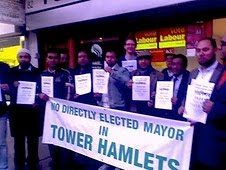
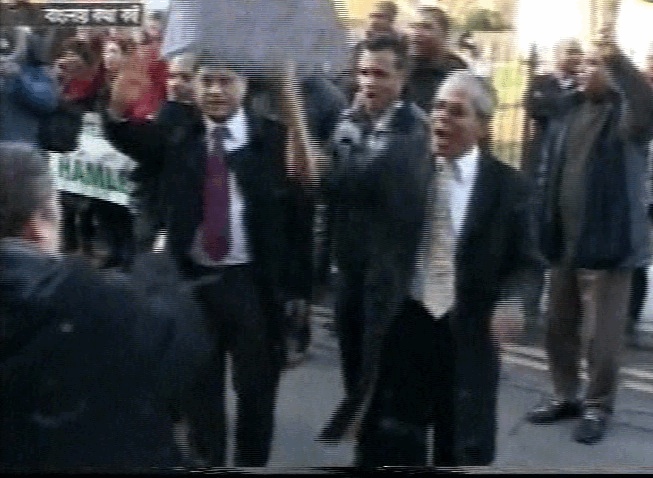





















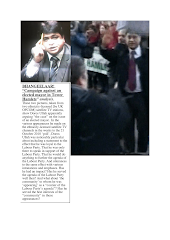


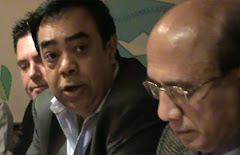

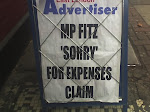
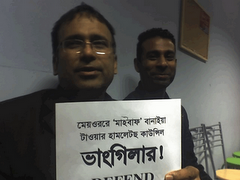
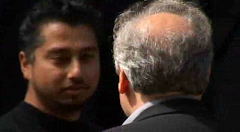
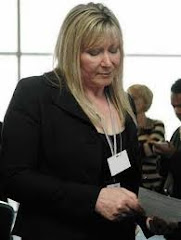
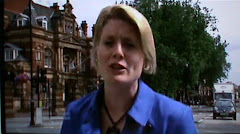


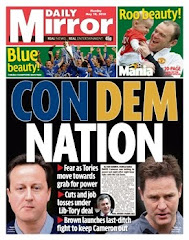
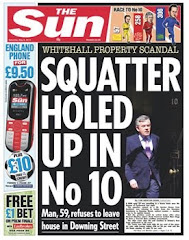
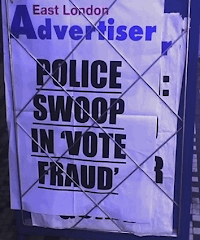
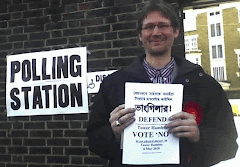
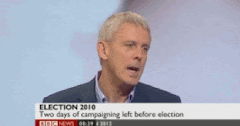

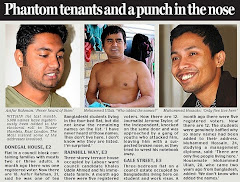
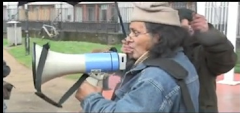

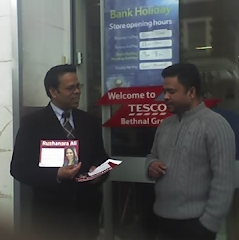
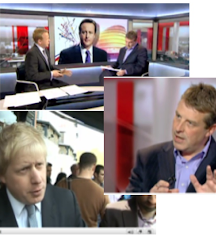
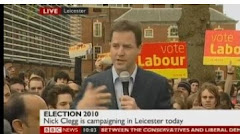
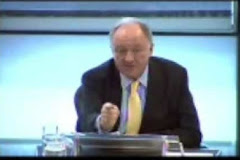
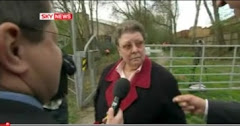
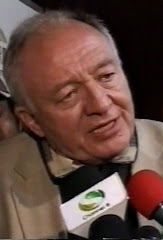
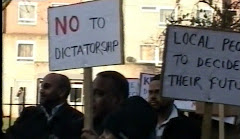


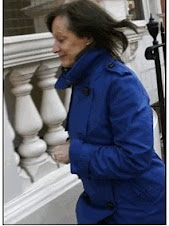
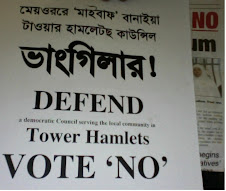
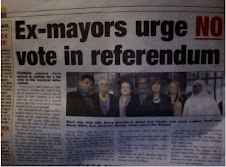
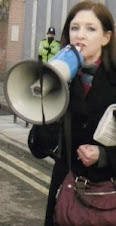
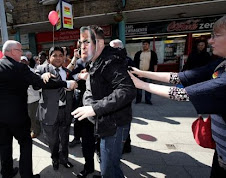
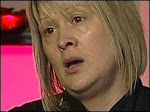
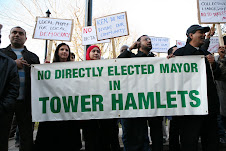
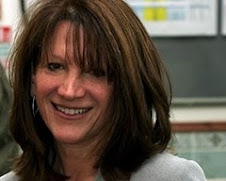
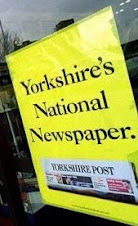

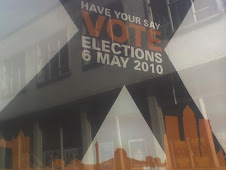
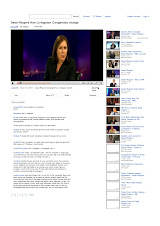
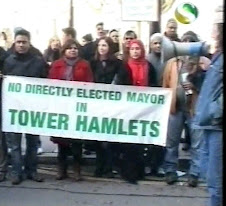
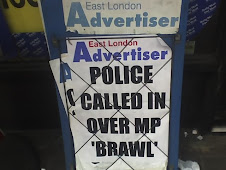
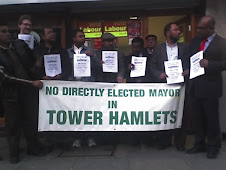
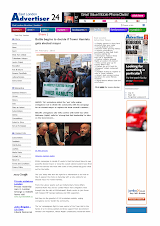
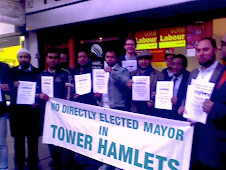
No comments:
Post a Comment